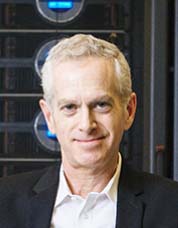What are the most promising strategies for finding cost-effective and equitable climate solutions?
We are on a straight-line trajectory that connects increased emissions to a much warmer and much stranger climate. Are there pathways for escaping from the up-escalator of climate change? UC Berkeley Professor Bill Collins examines the key culprits, carbon dioxide and “black carbon” from ordinary diesel combustion. His Berkeley research group has shown for the first time the direct link between carbon dioxide and the greenhouse effect. The team has just concluded work directly linking methane to the greenhouse effect as well. But there are now success stories pointing the way to reduce the threat. Governor Jerry Brown in California and other leaders have shown that collaborations between government and climate scientists can reduce the agents that drive global warming. Learn more about the potential impact of lowering our emissions of climate pollutants, and other strategies to help us find cost-effective and equitable climate solutions.
 Bill Collins
Bill Collins
Bill is an internationally recognized expert in climate modeling and climate change science. He is the Director of the Climate Readiness Institute (CRI), a multi-campus initiative to prepare the Bay Area for climate change. He was a Lead Author on the Fourth Assessment of the Intergovernmental Panel on Climate Change (IPCC), for which the IPCC was awarded the 2007 Nobel Peace Prize, and is also a Lead Author on the Fifth IPCC Assessment. Read more.
